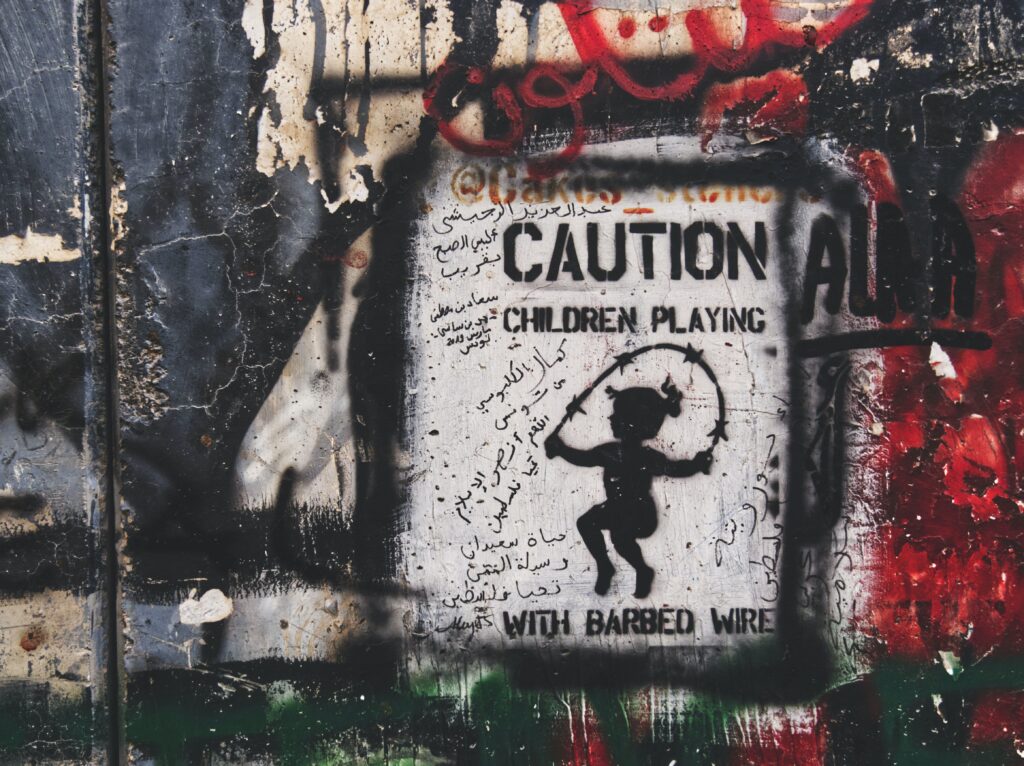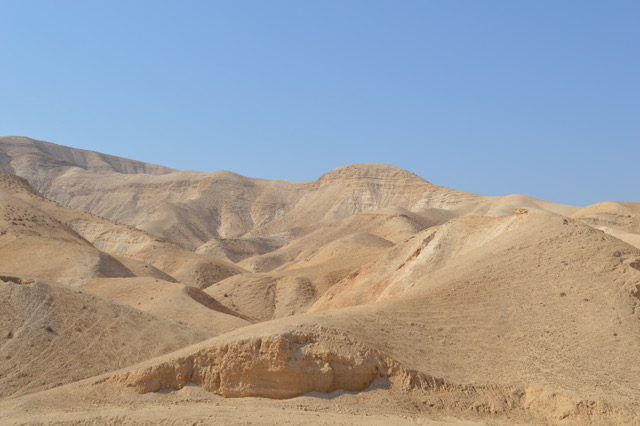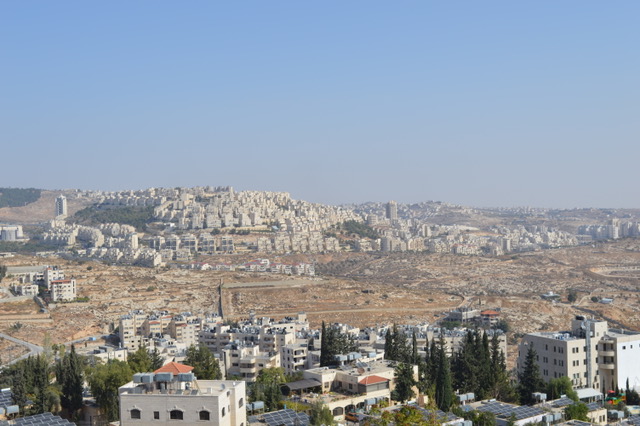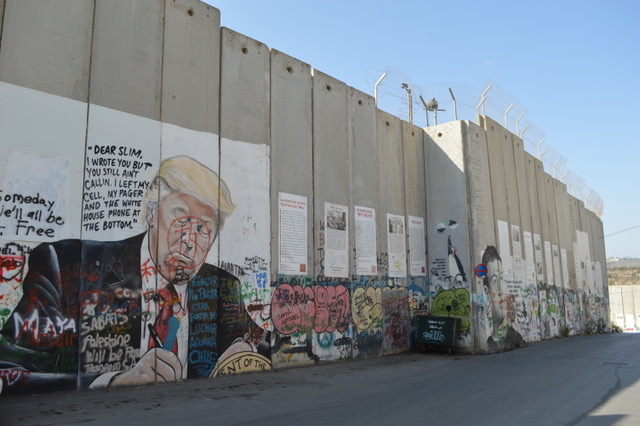By Katie Dominy, Middle East correspondent for The International
Cover photo credit: Dave Herring
It’s been famously dubbed ‘the never-ending conflict’. In fact, the long-standing hostility between Israel and Palestine has been such a common feature of international affairs for the past seventy plus years, it has almost disappeared from the regular news cycle.

Photo credit: Jakob Rubner
That is, of course, until a stick of dynamite is thrown into the fray. The current high-impact move? The announcement that Israeli Prime Minister, Benjamin Netanyahu, plans to annex numerous Israeli settlements and the Jordan Valley.
These recent revelations are steeped in controversy. The Israeli settlements in question, as well as the Jordan Valley, are all areas within the West Bank, a territory that Palestinians desire as part of an autonomous state. Disputes over land ownership are commonplace in this conflict; nevertheless, recent developments are threatening the region’s fragile stability, and are boiling over into the international community.
What does ‘annexation’ mean in this context?
According to international law, annexation is the “forcible acquisition of territory by one State at the expense of another State”. It is illegal, as it violates international resolutions against the threat or use of force. In this context, Israel wishes to declare sovereignty over roughly 30% of the West Bank. The West Bank, along with East Jerusalem, is legally referred to as the Occupied Palestinian Territory by the International Court of Justice (the judicial branch of the UN), due to Israel’s military occupation of the area since the 1967 Six-Day War.

Photo credit: Eilish Camplisson
Contrary to international opinion, Netanyahu does not view his plans as ‘annexation’. Instead, he characterises them as a “once in a lifetime opportunity” to protect Israeli national security, and to guarantee “secure, permanent borders for the State of Israel”. He sees it as a means to “[apply] Israeli law to already existing Jewish communities in Israel’s ancestral homeland”. Netanyahu regularly cites Jewish people’s ancient geographical and religious ties to Judea and Samaria (the modern-day West Bank) as his motivation for solidifying Israeli sovereignty there. He argues that his plans do not constitute an annexation, as he says Palestinians will be able to move freely between Arab villages and towns.
Netanyahu indicated this process of extending Israeli sovereignty could commence as early as 1st July. Delivering annexation would mean Netanyahu fulfilling an election promise of his right-wing Likud Party. In the past 14 months, Israel has been through three general elections, with each delivering inconclusive results. It is only Netanyahu’s April 2020 agreement with Benny Gantz (a centrist rival) to form an emergency coalition government that is granting him a fifth term as Israeli Prime Minister.
While You’re Here…
Why not take a moment to subscribe to The International’s free monthly newsletter? It takes seconds to sign up, and you’ll stay up to date with the stories shaping our world at a pace that won’t overwhelm.
Why is this move so controversial?
The UN Secretary-General, António Guterres, described the current predicament as “a watershed moment”. He implored the Israeli government not to follow through with their plans, adding;
“If implemented, annexation would constitute a most serious violation of international law, grievously harm the prospect of a two-State solution and undercut the possibilities of a renewal of [peace] negotiations.”

Photo credit: Eilish Camplisson
Additionally, 1080 politicians from 25 European countries have signed an open letter condemning the plans. The letter – coordinated by Avraham Burg, a former speaker in the Israeli parliament and a supporter of the two-state solution – warns of annexation’s “destabilising potential”, saying it allows for “effectively permanent Israeli control over a fragmented Palestinian territory, leaving Palestinians with no sovereignty.”
Annexation would disregard international laws and norms on several counts. For starters (as mentioned above), it would involve the forceful acquisition of land, as well as the violation of another state’s (or, in this case, future state’s) sovereignty and territorial control. Since its creation, the UN has passed resolutions (including Resolution 181 and Security Council Resolution 1397) calling for the formal establishment of a fully-recognised Palestinian state alongside the State of Israel. At the time of writing, Palestine holds ‘permanent non-member observer state’ status at the UN, but is not a fully-fledged member state.
Additionally, the Israeli settlements that Netanyahu plans to annex are already considered illegal under international law. The International Court of Justice, the UN Security Council, and the UN General Assembly all state that the approximately 130 settlements in the West Bank are a violation of the Fourth Geneva Convention. Construction of settlements has been condemned internationally, as Palestinian homes and property have been destroyed to make way for these communities. The Israeli government has been instructed (both unilaterally and from multilateral bodies) to halt settlement construction, but this is yet to transpire. Currently, around 400 000 settlers now live in the West Bank amongst some 2.9 million Palestinians (estimates vary depending on sources)
What do citizens on both sides think about annexation?
Within Israel, public opinion on annexation is divided. According to a recent poll conducted by Haaretz (an Israeli broadsheet newspaper), 42% of Israeli respondents said they supported varying forms of annexation (from partial to full). Conversely, 28% said they were opposed to annexation, and an additional 30% were unsure how they felt.
As the concept of West Bank annexation was historically associated with right-wing Israeli nationalism, it is unsurprising that 39% of respondents who align with Netanyahu’s Likud Party support the move. Interestingly, a further 39% of Likud-voting respondents were against any form of West Bank annexation.
Of centrist, Blue and White alliance-supporting respondents, 31% oppose annexation, 33% are unsure, and 36% support varying extents of annexation. From the Israeli left, 41% of Labor Party supporters said they opposed any form of annexation, whilst 46% support the annexation of Area C (areas of the West Bank that fall under Israeli civil and security control). Half of left-leaning Meretz Party supporters expressed opposition to any form of annexation.
On the Palestinian side, opposition to annexation is unanimous. On 22nd June, thousands protested in Jericho, a Palestinian city in the Jordan Valley.
Raed Debiy is a member of Fatah – the political party in control of the Palestinian National Authority (the West Bank’s governing body). In his capacity as International Leader of Fatah Youth, Debiy spoke exclusively to The International about Palestinian sentiments. “The annexation means any hope… for the two-state solution will be a kind of utopia. It will mean the creation of Palestinian ghettos… [and] will make any kind of development of Palestinian land impossible.”
He also called for an international response to Netanyahu’s proposals:
“For Palestinians now, silence is complicity. Direct action must be taken by the international community to stop this violation of international law and consensus. Otherwise, I’m afraid that we will reach a point of lose-lose, where another circle of actions and reactions will start. I’m afraid that the price of this circle will be very, very hard for all involved.”
International Leader of Fatah Youth, Raed Debiy speaking exclusively to The International
Will annexation actually go ahead in July?

Photo credit: Eilish Camplisson
At the moment, this remains somewhat unclear. Any final decision would be put to a vote in the Israeli parliament. However, in essence, it boils down to ongoing discussions behind closed doors between Israeli officials and the Trump administration. Netanyahu has been bolstered by unprecedented levels of support from the White House since Trump took office. In fact, since 2017, Trump’s inner circle have gone against decades of US foreign policy; from declaring Jerusalem as the capital of Israel; to stating that Israeli settlements are ‘not inconsistent’ with international law; and to releasing the controversial Middle East Peace Plan in January 2020. Many analysts see the latter as a green light for annexation plans. But whether Trump will guarantee US support of Netanyahu’s vision, or whether the prospect of near-universal outrage will sway decision-makers, remains to be seen.
Katie Dominy is The International’s Middle East correspondent.
